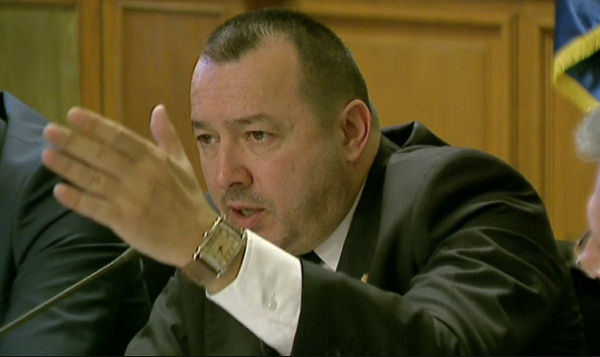Deputy Catalin Radulescu (foto) received a suspended sentence in 2016 to one year and six months of imprisonment
The Legal Committee of the Chamber of Deputies voted on Tuesday a bill that decriminalises some of the corruption offenses if they do not simultaneously meet two conditions:
- if the unfair advantage resulted does not belong to the person who committed the offense
- if it is not about „material” advantages and benefits,
Consequently, if an official provides a company with the information needed to win a tender, the benefit is to the firm and the official can no longer be punished.
The draft was initiated by 16 PSD parliamentarians, including Catalin Radulescu, sentenced in December 2016 to one year and six months of imprisonment for bribery and financial operations, as trade activities, incompatible with his position. The last of his acts is exactly one of the two offenses covered by the draft voted on Tuesday in the Legal Committee of the Chamber of Deputies.
Specifically, there are some amendments to art. 12 of Law 78/2000 on the preventing, identifying and sanctioning corruption acts:
- (1) The following acts shall be punished by imprisonment from 1 to 5 years, if they are committed for the purpose of obtaining, for themselves, money, goods or other unfair material advantages:
- a) carrying out financial operations, as trade activities, incompatible with the position, function or assignment performed by a person or concluding financial transactions by using the information obtained by virtue of his or her position, function or assignment;
- b) the use in any way, directly or indirectly, of information that is not intended to be made public or allowing the access of unauthorized persons to such information.
- (2) For the purpose of this law, financial transactions consist of transactions involving capital movements, bank operations, foreign exchange or credit transactions, investment banking, in stock exchanges, insurance, mutual investment or related to bank accounts or those treated as such, domestic and international commercial transactions. In order to be implemented as trade actions, financial transactions must be an intermediary action in the movement of goods, performed in an organized manner and systematically for the purpose of obtaining profit.










